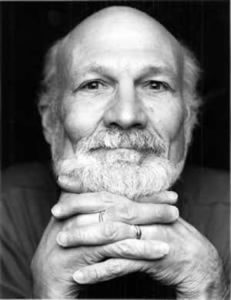 Securing Kierkegaard’s Witness for Us Today
Securing Kierkegaard’s Witness for Us Today
On Thursday, October 12, Stanley Hauerwas visited the University of Virginia to deliver the 2017 Capps Lecture in Christian Theology, entitled “Christianity is Madness: Kierkegaard and the Academy.”
Attending to Kierkegaard’s attack on Christendom, Hauerwas aimed to recover why his theology should continue to challenge us today. However, since we are no longer in the robust Christendom that was Kierkegaard’s Denmark, he argues that we may have to rethink what it means to do theology grounded in true discipleship.
Discussing Kierkegaard’s disapproval of the Christendom of his day, Hauerwas says:
“What must be acknowledged, Kierkegaard argues, is from any human point of view, Christianity is and must be a form of madness. It is so because only through a consciousness of sin can one come to the one who can save. Accordingly, Christianity must display itself as madness in order that the qualitative infinite emphasis may fall upon the fact that only consciousness of sin is the way of entrance. Indeed, this is the kind of consciousness that is the exact opposite of the kind of awareness that Christendom sponsors, namely the attitude which expresses admiration for Jesus. Such a form of consciousness is a fraud and self-defeats, but is one common to Christendom. It is so because in Christendom Christ is exalted to confirm our self deceptions, the deepest deception being that we do not have to lose our lives to be a disciple of Jesus.”
This lecture was co-sponsored by Theological Horizons and the Project on Lived Theology. For more information, visit the Theological Horizons website here. Browse and listen to previous CAPPS Lectures in our resource collection here. Watch Hauerwas’s lecture here.
Stanley Hauerwas is a longtime professor at Duke University, serving as the Gilbert T. Rowe Professor of Theological Ethics at Duke Divinity School with a joint appointment at the Duke University School of Law. Involved in the areas of systematic theology, philosophical theology and ethics, political theory, as well as the philosophy of social science and medical ethics, his work and research interests intersect across many disciplinary lines. His recent publications include The Work of Theology (Eerdmans, 2015) and Hannah’s Child: A Theological Memoir, 2nd Ed. (Eerdmans, 2012).
